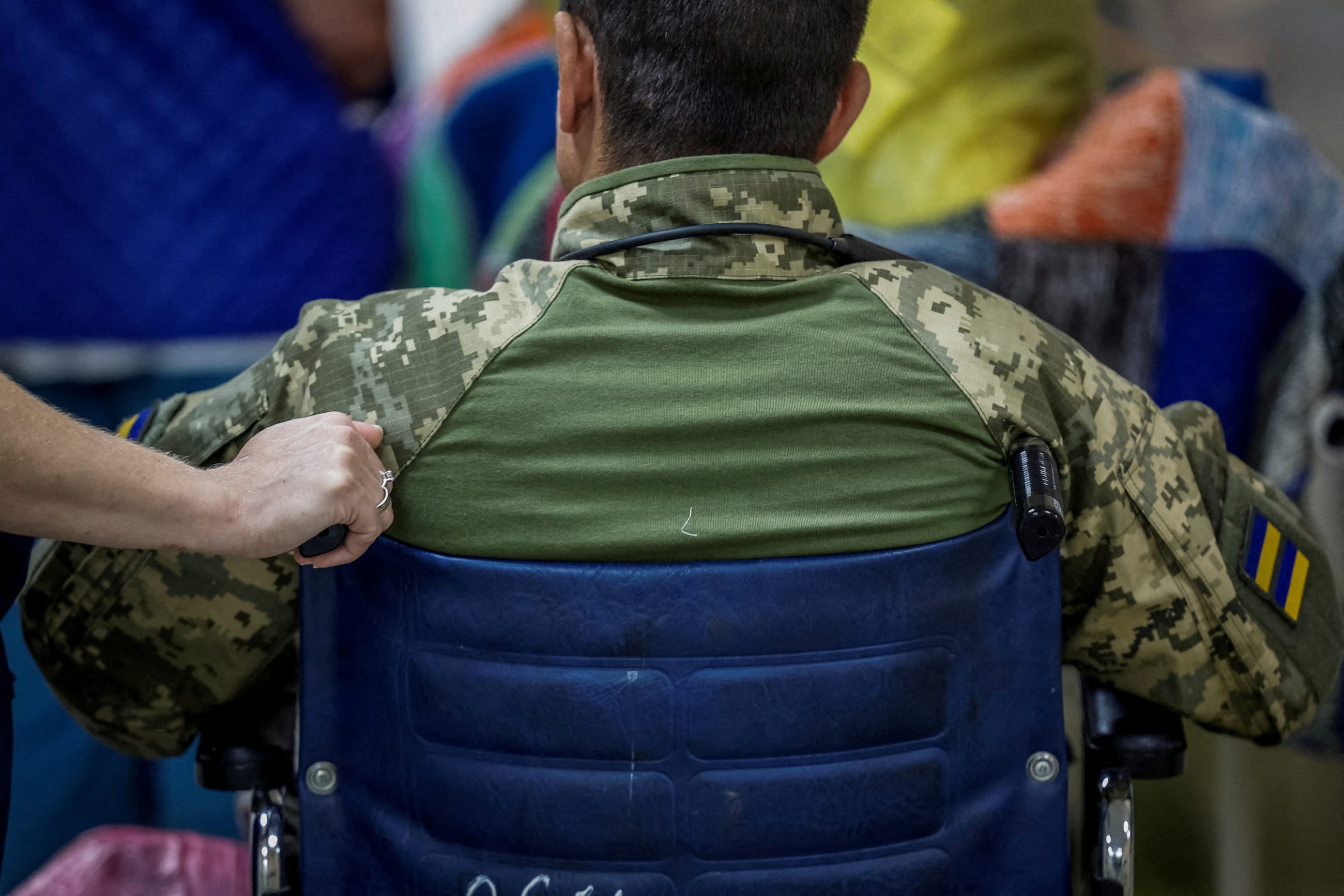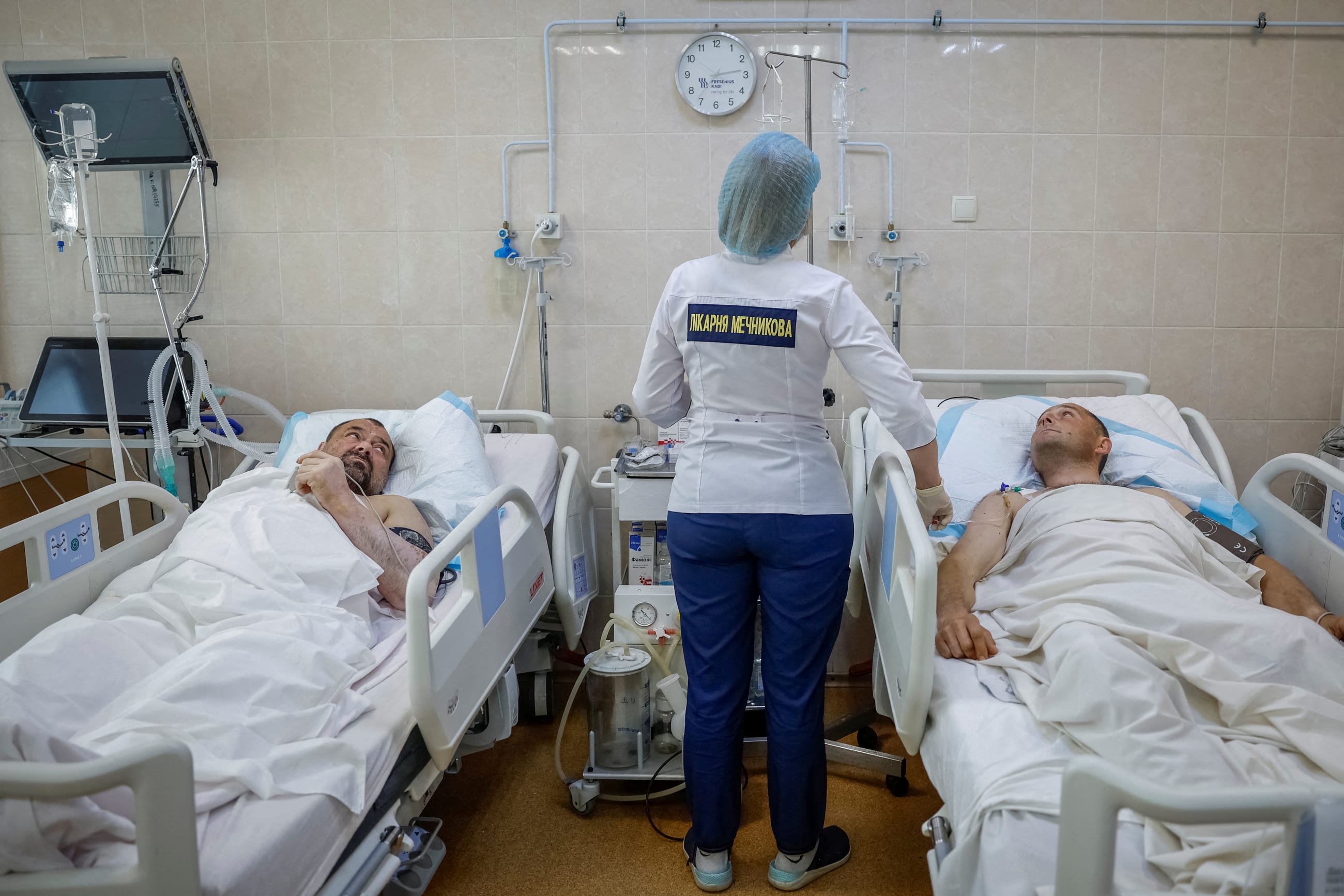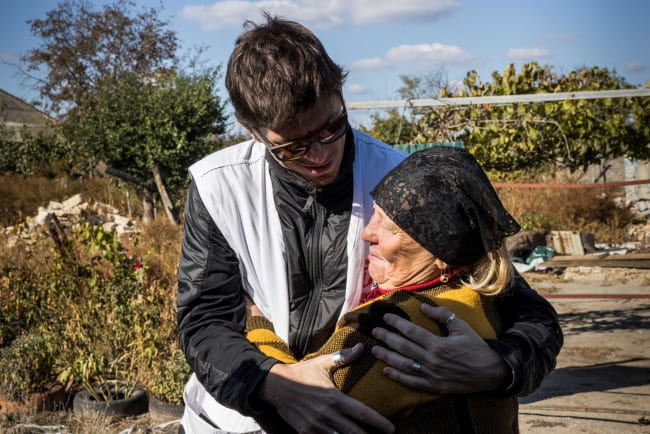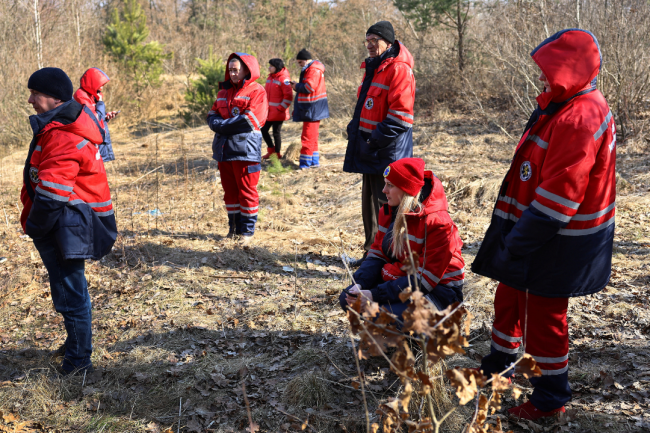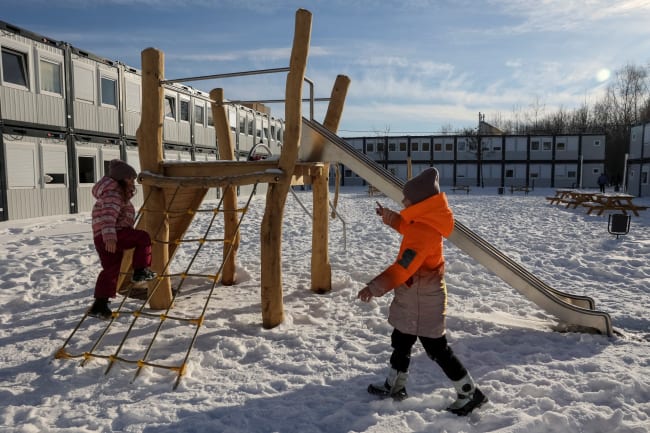On a hot summer's night in Dnipro, Ukraine, Taras Shevchenko Park is a cool, shaded oasis inside a gritty industrial city where lovers stroll hand in hand, families and children play, and people crowd cafes and food stalls.
For a moment, the notion of war fades away.
But Dnipro sits 62 miles from the front lines with Russia and, breaking the evening calm, air raid sirens go off. The city faces threats of drone and missile attacks day and night. Six days before my visit to the park in late July, the area came under a rocket and drone attack that killed two people and wounded five.
The signature wound of this war is limb amputation. Estimates reported in July stated 30,000 to 100,000 Ukrainian soldiers and civilians have had a limb removed since 2022 and that a significant portion have lost more than one.
Most also suffer from concussions, traumatic brain injuries, post-traumatic stress disorder, or head and facial injuries. Those numbers could overwhelm any medical system. In comparison, the U.S. Department of Defense estimates that the wars in Afghanistan and Iraq resulted in a total of 1,705 amputees over a 16-year period.
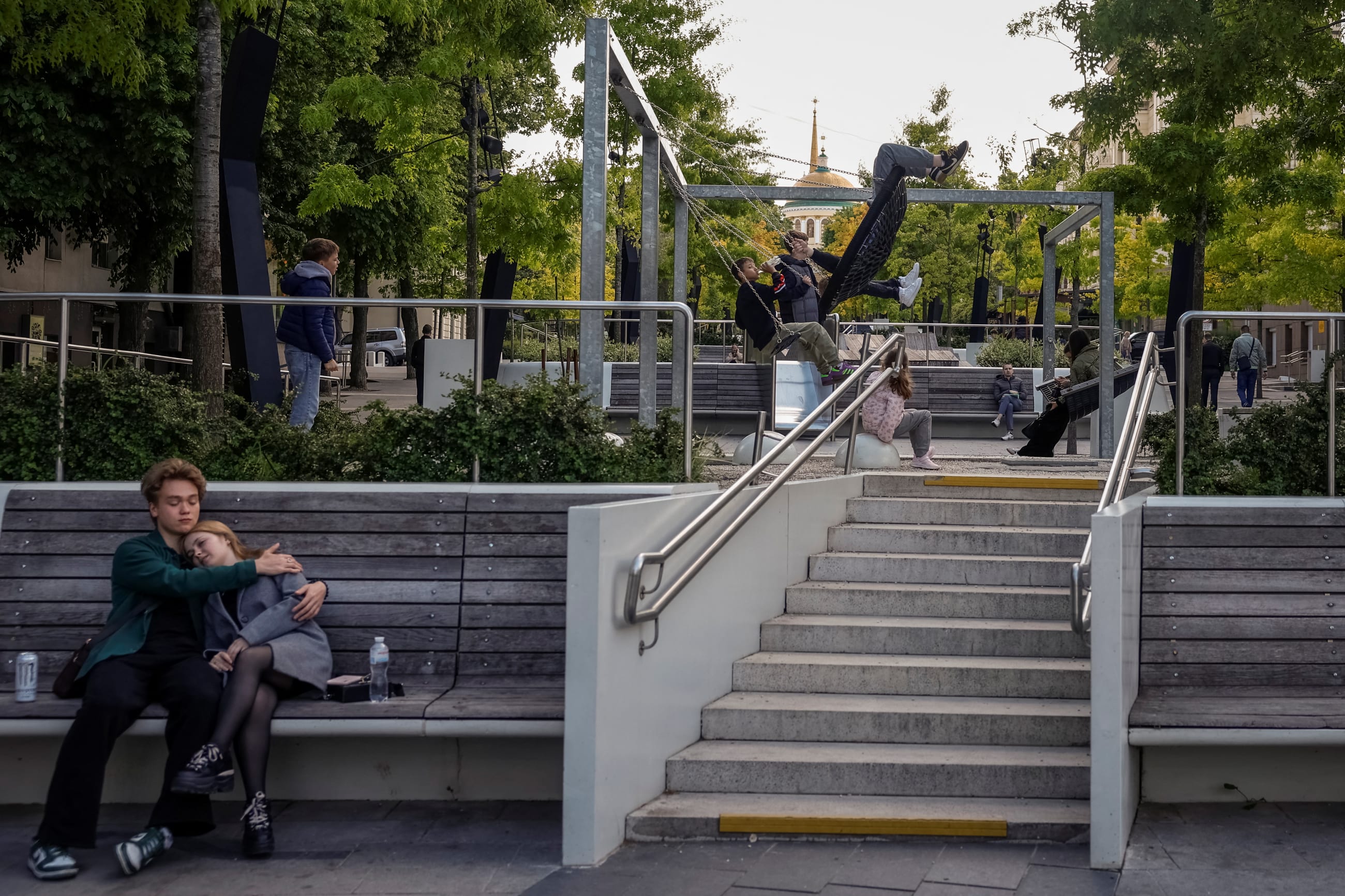
Life and Injuries in Dnipro
At sunset, a close look at the distant bridge reveals dozens of ambulances lining up—all loaded with critically wounded soldiers from the front lines. They must wait until evening to enter the city so as not to attract drone attacks.
Mechnikov Regional Hospital receives most of the wounded. Its 500 health-care workers prepare for mass casualties. Empty hospital beds are filled within an hour. Each night, 60 to 100 soldiers arrive, most requiring amputations and 80% needing ventilator support.
To keep up with the influx of patients, the hospital performs 50 or more emergency surgeries each night.
The pace of work, volume and severity of casualties, and ongoing threat of missile attacks put health-care workers in a constant state of alertness, causing significant psychological stress. They are not immune from attack.
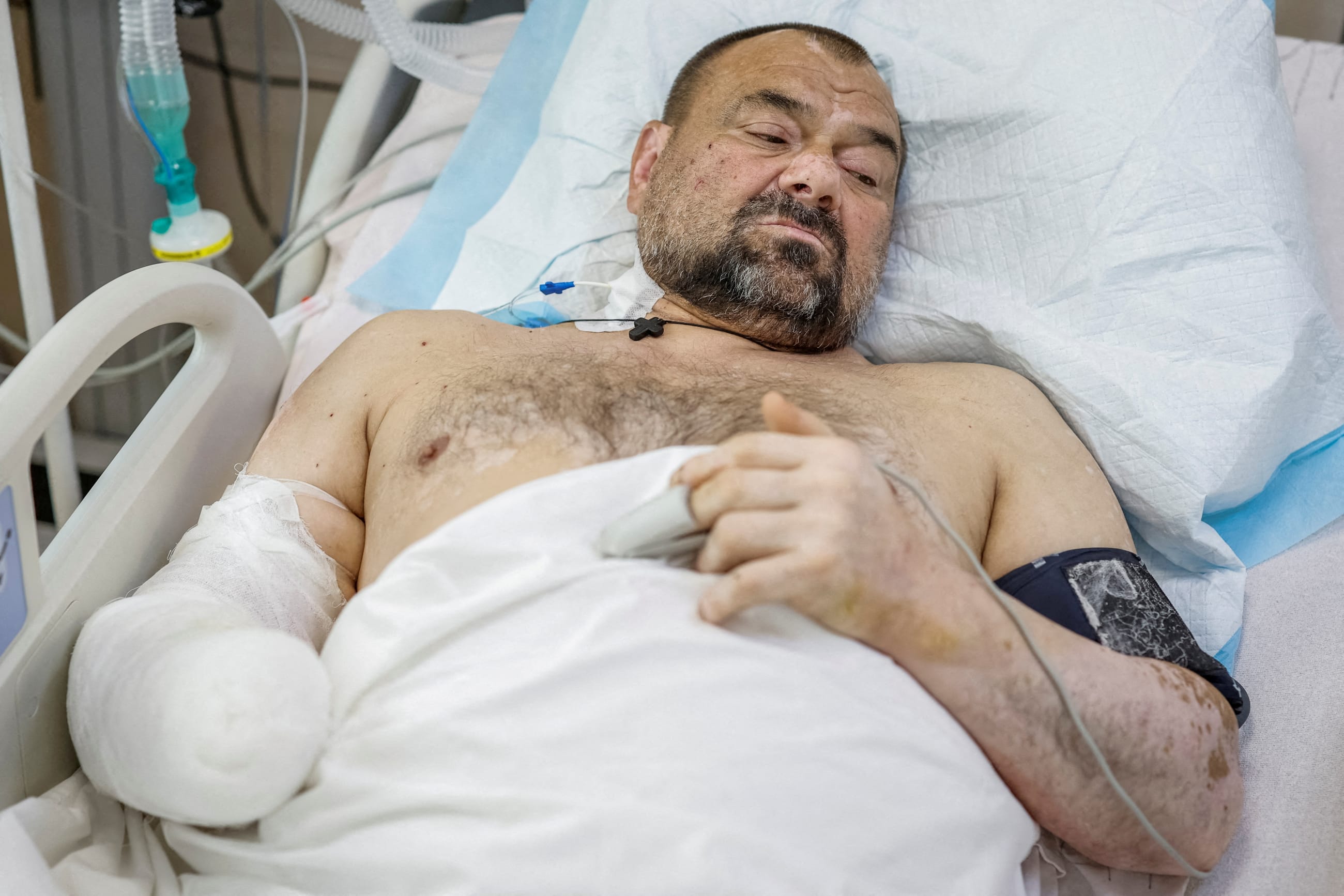
In October 2024, the hospital was struck by a Russian missile, killing five and injuring 21. One doctor told me, "We all have chronic stress. We do not feel safe. We do not feel our family members are safe." Despite this, the staff carries on.
A soldier in his late 30s whose leg was amputated had arrived at Dnipro Clinical Hospital #4 from the front lines on July 28. He had closed his furniture business and joined the army after the war started because he did not want his "children sleeping in the basement anymore." He plans to return to his unit on the front lines after being fitted with a prosthesis, joining the 75% of injured soldiers who reportedly return to duty after rehabilitation.
The UN Mine Action Service estimates that more than 20% of Ukraine is now covered by unexploded ordnances. Scattered by rockets and aircrafts, leaf and butterfly mines get their name from their distinctive wing shape and are about the size of a fist. Because they are plastic, they go undetected by metal detectors and are quickly set off with even a light touch. Once detonated, they can blow off a foot, hand, or a limb, forever disabling the victim. Unexploded landmines pose a threat to civilians and children who unwittingly pick them up or step on them after the war ends.
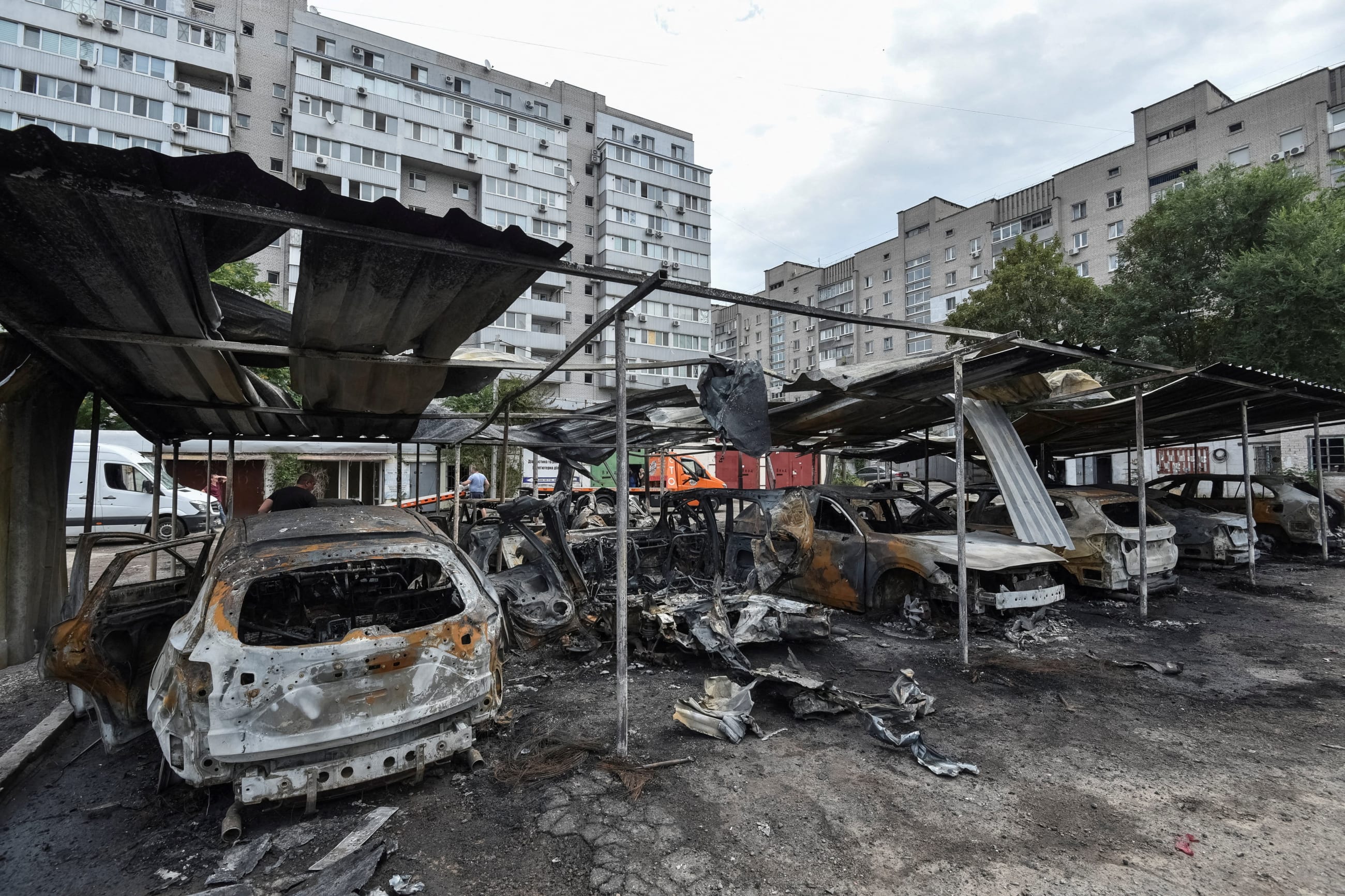
This modern war thrives off drones. Equipped with missiles or bombs, the remotely operated aircraft target both military and civilians, including medical vehicles. They are launched in waves to overwhelm defenses. Those swarms make medical evacuations difficult and often impossible, targeting medical vehicles and delaying time-sensitive care in the combat hospitals.
Civilians are not spared. On July 31, my medical convoy had just left Kyiv when the city sustained a brutal drone and missile attack on its residential areas, resulting in 179 injuries and 31 deaths that included five children. Schools, residential apartments, and medical facilities were damaged.
This is a war to defend the homeland. "These casualties are our sons, brothers, fathers, husbands, and neighbors. They are not professional soldiers. They are our family," a health-care worker who chose to remain anonymous said.
Targeting civilians, attacking medical facilities and personnel, and the indiscriminate use of landmines are war crimes. Russia should be exposed for these gross violations of the laws of war and held accountable by the international community. The American medical community needs to keep eyes on this conflict, call out violations of the law, and where possible assist in supporting the Ukrainian people.
